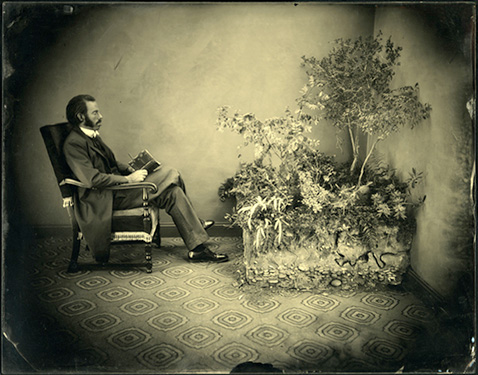


The most scandalous moment of my youth: I am eleven, and I am a "lockout." In the parlance of our high-rise in Manhattan, this means that I have forgotten my keys and there is no one home to let me in. I've gone down the elevator to tell the doorman, who has summoned the super, who has called one of his cousins or nephews, and now I wait, sitting on regal-patterned, gold and green hotel-style carpet outside our apartment door.
This being New York City, we—my sister, my mother and I—know many intimate things about our neighbors, but we often don't know their names. The gentlemen in the apartment whose door corners ours have gilt mirrors in their hallway and pale lavender velvet sofas—these we can see when the door slams ahead of us; there is never a hello. They are silver haired. It is all very Liberace. There is a telephone table in the hallway, also gilt, with a glass top, and a curvaceous telephone.
One of the gentlemen is speaking on the phone as I wait for the super's man, and I can hear it all. It's about business, making plans for a sale of some kind, the voice behind the door and the invisible voice going on for several minutes each about dollars and conversion fees and customs.
Then, the signoff: "Oh. And, Don? I'd love to suck your cock."
Gay culture of the Seventies. Where did it go? We know where it went, swallowed up by AIDS, its surviving traces subsumed by the aesthetics of the Eighties; then worse, by yoga and the Nineties; and then the death knell, the not-so naughty Oughties. All the gay men I know now are in relationships. Gay men in relationships? They're getting married. The queens next door, of course, were in a relationship too—and yes I know that there are open relationships today. And yet this past seems so essentially different to me.
My friend from France thinks America is ridiculous, religion-obsessed, marriage-obsessed. "Even gay men want to get married." He laughs at me, at us.
Until this year, on my block in the East Village there was a bar on the corner called Dick's. There used to be a lot of these downtown, generally further west: Pricks and Cocks and Manhandle and Meat. Dick's survived long past the leather era. I used to peer in whimsically as I walked by, hoping to get a glimpse of the men inside. They were balding fellows in plaid shirts with beer bellies. I don't think I ever saw a person younger than fifty.
I never went in, it wasn't my place, though when I lingered at the door one time to catch a whiff of the bygone era I got a stern look that argued against my ever trying. There was a neon martini glass in the window, and aside from the terrible pun of the name not even a nod to the ignorant. I imagine what it was like in the early days, anonymous—or not—depending on the slant of the passerby. According to a review I found once, there wasn't even a ladies room. "They were playing a Doris Day movie when I went in for a Guinness. I could imagine spending long Sundays here watching musicals and nursing many beers," wrote the reviewer. This suggested one thing overall to me: the Seventies.
This my ten-year anniversary on the block. The bar turned over and became 12th Street Ale House earlier in the winter. I'd thought it wasn't possible for Dick's to ever cease to be—it had survived so long. But like the independent hardware stores and the deli that seemed to stay alive in spite of a labor strike and an open sewage drain on the sidewalk and rats scampering out in front of it, Dick's went the way of neighborhood universifity-fication.
Now there is a mac and cheese joint on the block, which like the new bar caters to the NYU crowd. When I pass by and watch students from Tennessee and Ohio inhaling sliders, I sometimes imagine the fight it must have taken to turn back the clientele of yesteryear. Or did Dick's regulars go meekly? What would have stopped a galvanized effort to dominate the new bar by showing up, to make the college kids uncomfortable and go away—or to draw them in, invite them in, lusciously?
When I'm not on my block I'm teaching at a Big Ten campus four hours from New York City, where on Saturday nights there are hoots echoing across the rural mountaintops, the eternal sound of testosterone and boys on beer. This is why I recognize those same sounds now, when I hear them at two a.m., three a.m., four a.m., on Saturdays in the East Village, the sounds of frat-boys rollicking, the sound of NYU encroaching further east, swallowing up us all.
I am very happy about gay marriage, certainly. I'm happy about my friends who lined up at City Hall in New York this July 24. A friend was number two in line!
I would like Dick's back, too, though. I have some questions about things that are changing. What will replace the type of cultural space once occupied by Dick's—a place to celebrate the surreptitious? Could Dick's even survive now? Is our culture really becoming so normal? Who will so reliably transgress now?
I would also like to find the queens next door. Just for a moment, I'd like to see inside that apartment again.

